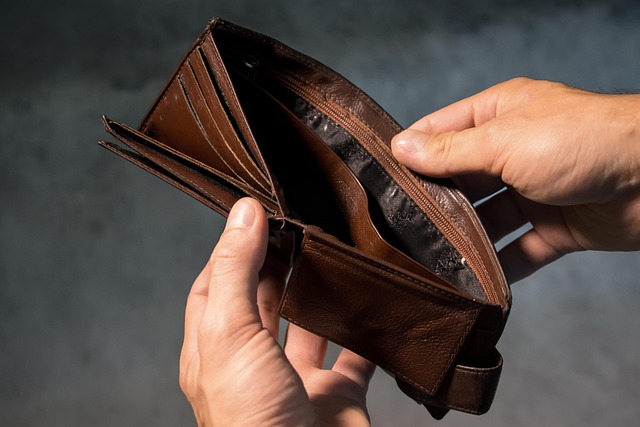Reader question: What happens if I don't pay my Swiss bills on time?

Switzerland is not the only country where you should pay invoices in a timely manner, as this is expected elsewhere as well. But what happens if you pay late — or not at all?
What might be different in Switzerland compared to other nations is the way you pay your bills.
For instance, while cheques are still commonly used in some countries for payments, this method is practically non-existent in Switzerland.
Instead, this is done by a bank transfer — a pretty efficient process with your payment usually carried out within 24 hours during the week, though it can take longer on weekends.
An even quicker — as in instantaneous — payment can be made by Twint, but most businesses don’t offer this option for your monthly payments; it is used mostly in restaurants, some shops, or to transfer money by phone from one individual to another.
READ MORE: Cashless payments in Switzerland: What is Twint and how does it work?
Paying bills online
Once you receive a bill by mail or online, you typically have 30 days to pay it.
Since October of this year, QR-coded pay slips have replaced the old ones — as the name suggests, these black and white forms include QR codes, rather than bank account numbers and other information that you had to input manually before.
You can scan the code using a mobile app from your bank. Once you do, the data will be automatically transmitted to your e-banking.
This article explains how the system works:
EXPLAINED: What you should know about Switzerland's new slips for paying bills online
This process is fairly simple once you get the hang of it, but what happens if you don’t make the payment on time — that is, within the 30-day period?
It depends on how late you are.
If you miss your initial deadline, the company will send you a gentle reminder (along with another QR-coded pay slip), telling you that if you don’t pay this time around, the new bill will include interest and administrative fees.
If that goes unpaid as well, the next step is more serious: the company will send you, by registered mail, summons for payment from the debt enforcement office in your canton, giving you 20 days to settle.
At this point, if you feel you don’t owe the company any money, you can contest the debt either orally or in writing when the summons is delivered. or by going to the debt enforcement office within 10 days of receiving the summons.
What happens next?
This is how the official government site explains the process: “By filing an objection, you are potentially proposing that the matter be settled by court proceedings. You are telling the creditor that you do not recognise the debt and that the creditor must apply to court if they wish to continue enforcing the debt.
"After the objection is filed, a court decides, at the creditor's request, whether the debt enforcement process should continue. The creditor must show that their claim is justified. If they succeed in doing so, the court sets the objection aside and the creditor can continue to enforce the debt."

Court may decide to seize your assets. Photo: EKATERINA BOLOVTSOVA on Pexels
If this happens and you still don’t pay, “the debt enforcement office can order your assets and income to be seized to pay the creditor's claims".
In such a case, authorities will instruct your employer to transfer the portion of your future salary directly to the debt enforcement office. They can also seize valuables that you own so that they can be auctioned off.
Obviously, this is the absolute worst-case scenario that you want to avoid at all costs (pun intended).
Future problems
There are important reasons why you don’t want to have a debt attached to your name.
If you are a foreigner, a debt can prevent you from obtaining Swiss citizenship.
READ MORE: Citizenship: How personal debt could stop you from becoming Swiss
And regardless of whether you are a foreign or Swiss national, a debt is a stain on your record, which will hinder you from renting an apartment, getting a credit card, mortgage or another kind of loan.
What if you can’t afford to pay your bills?
Get help before the matter gets to the debt collection proceedings. Cantons have services dealing with individuals in financial difficulties.
These are numbers to call in German speaking cantons and French ones.

If you can't pay your bills, help is available. Photo: Andrew Khoroshavin from Pixabay
There is also help available if you have problems paying your mortgage:
What to do in Switzerland if you cannot pay your mortgage
Or perhaps you just forget to pay your bills on time.
If you are absent-minded to that point, there are two things you can do:
Set up direct debits
You can arrange this automatic-payment system through your bank. Many people do this to pay recurring monthly or quarterly bills, such as telecom services, health insurance premiums, taxes, credit cards, and such.
These bills arrive directly to your bank, which will pay them on either the last day of the month or the first, depending on how you set it up.
Pre-pay
Once you receive your bill, you can immediately set up the payment to be made 30 days ahead.
This way, you won’t have to worry about it later — or get in trouble.
Comments
See Also
What might be different in Switzerland compared to other nations is the way you pay your bills.
For instance, while cheques are still commonly used in some countries for payments, this method is practically non-existent in Switzerland.
Instead, this is done by a bank transfer — a pretty efficient process with your payment usually carried out within 24 hours during the week, though it can take longer on weekends.
An even quicker — as in instantaneous — payment can be made by Twint, but most businesses don’t offer this option for your monthly payments; it is used mostly in restaurants, some shops, or to transfer money by phone from one individual to another.
READ MORE: Cashless payments in Switzerland: What is Twint and how does it work?
Paying bills online
Once you receive a bill by mail or online, you typically have 30 days to pay it.
Since October of this year, QR-coded pay slips have replaced the old ones — as the name suggests, these black and white forms include QR codes, rather than bank account numbers and other information that you had to input manually before.
You can scan the code using a mobile app from your bank. Once you do, the data will be automatically transmitted to your e-banking.
This article explains how the system works:
EXPLAINED: What you should know about Switzerland's new slips for paying bills online
This process is fairly simple once you get the hang of it, but what happens if you don’t make the payment on time — that is, within the 30-day period?
It depends on how late you are.
If you miss your initial deadline, the company will send you a gentle reminder (along with another QR-coded pay slip), telling you that if you don’t pay this time around, the new bill will include interest and administrative fees.
If that goes unpaid as well, the next step is more serious: the company will send you, by registered mail, summons for payment from the debt enforcement office in your canton, giving you 20 days to settle.
At this point, if you feel you don’t owe the company any money, you can contest the debt either orally or in writing when the summons is delivered. or by going to the debt enforcement office within 10 days of receiving the summons.
What happens next?
This is how the official government site explains the process: “By filing an objection, you are potentially proposing that the matter be settled by court proceedings. You are telling the creditor that you do not recognise the debt and that the creditor must apply to court if they wish to continue enforcing the debt.
"After the objection is filed, a court decides, at the creditor's request, whether the debt enforcement process should continue. The creditor must show that their claim is justified. If they succeed in doing so, the court sets the objection aside and the creditor can continue to enforce the debt."

Court may decide to seize your assets. Photo: EKATERINA BOLOVTSOVA on Pexels
If this happens and you still don’t pay, “the debt enforcement office can order your assets and income to be seized to pay the creditor's claims".
In such a case, authorities will instruct your employer to transfer the portion of your future salary directly to the debt enforcement office. They can also seize valuables that you own so that they can be auctioned off.
Obviously, this is the absolute worst-case scenario that you want to avoid at all costs (pun intended).
Future problems
There are important reasons why you don’t want to have a debt attached to your name.
If you are a foreigner, a debt can prevent you from obtaining Swiss citizenship.
READ MORE: Citizenship: How personal debt could stop you from becoming Swiss
And regardless of whether you are a foreign or Swiss national, a debt is a stain on your record, which will hinder you from renting an apartment, getting a credit card, mortgage or another kind of loan.
What if you can’t afford to pay your bills?
Get help before the matter gets to the debt collection proceedings. Cantons have services dealing with individuals in financial difficulties.
These are numbers to call in German speaking cantons and French ones.

If you can't pay your bills, help is available. Photo: Andrew Khoroshavin from Pixabay
There is also help available if you have problems paying your mortgage:
What to do in Switzerland if you cannot pay your mortgage
Or perhaps you just forget to pay your bills on time.
If you are absent-minded to that point, there are two things you can do:
Set up direct debits
You can arrange this automatic-payment system through your bank. Many people do this to pay recurring monthly or quarterly bills, such as telecom services, health insurance premiums, taxes, credit cards, and such.
These bills arrive directly to your bank, which will pay them on either the last day of the month or the first, depending on how you set it up.
Pre-pay
Once you receive your bill, you can immediately set up the payment to be made 30 days ahead.
This way, you won’t have to worry about it later — or get in trouble.
Join the conversation in our comments section below. Share your own views and experience and if you have a question or suggestion for our journalists then email us at [email protected].
Please keep comments civil, constructive and on topic – and make sure to read our terms of use before getting involved.
Please log in here to leave a comment.